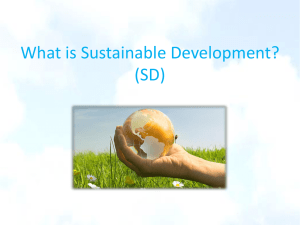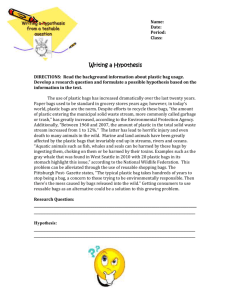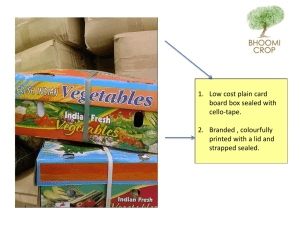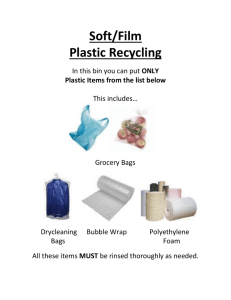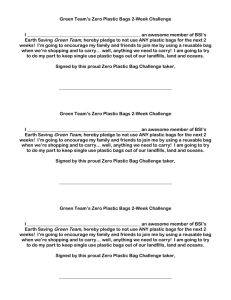Plastic Bags: Fiction vs. Fact – Rebuttals for Common Bag Ban
advertisement
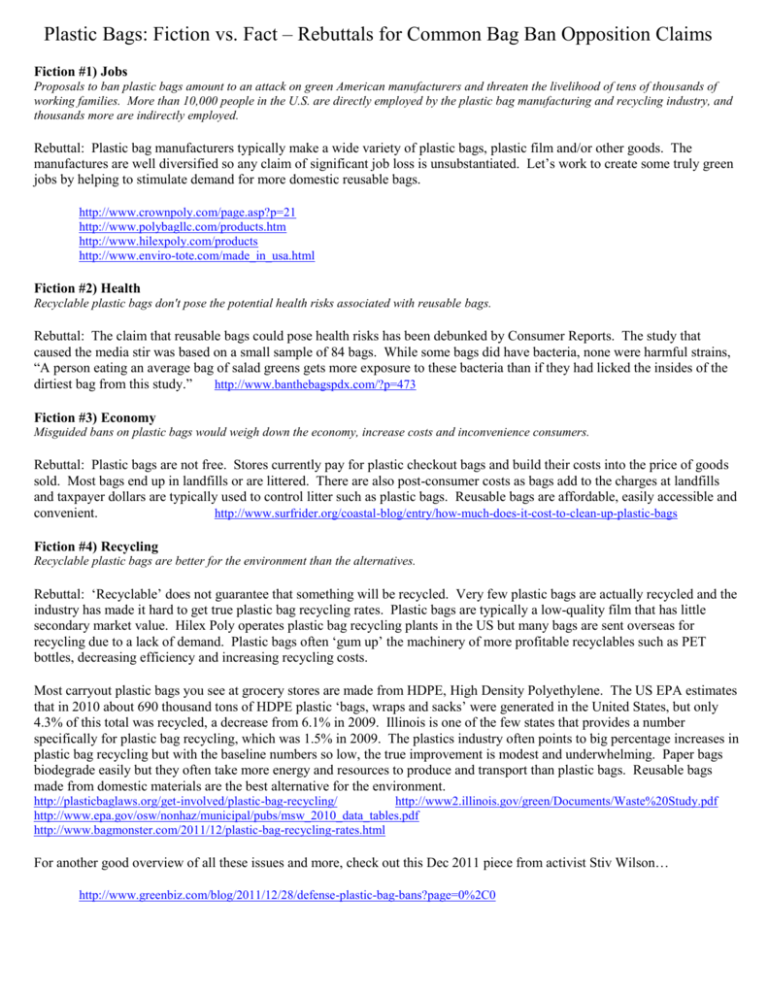
Plastic Bags: Fiction vs. Fact – Rebuttals for Common Bag Ban Opposition Claims Fiction #1) Jobs Proposals to ban plastic bags amount to an attack on green American manufacturers and threaten the livelihood of tens of thousands of working families. More than 10,000 people in the U.S. are directly employed by the plastic bag manufacturing and recycling industry, and thousands more are indirectly employed. Rebuttal: Plastic bag manufacturers typically make a wide variety of plastic bags, plastic film and/or other goods. The manufactures are well diversified so any claim of significant job loss is unsubstantiated. Let’s work to create some truly green jobs by helping to stimulate demand for more domestic reusable bags. http://www.crownpoly.com/page.asp?p=21 http://www.polybagllc.com/products.htm http://www.hilexpoly.com/products http://www.enviro-tote.com/made_in_usa.html Fiction #2) Health Recyclable plastic bags don't pose the potential health risks associated with reusable bags. Rebuttal: The claim that reusable bags could pose health risks has been debunked by Consumer Reports. The study that caused the media stir was based on a small sample of 84 bags. While some bags did have bacteria, none were harmful strains, “A person eating an average bag of salad greens gets more exposure to these bacteria than if they had licked the insides of the dirtiest bag from this study.” http://www.banthebagspdx.com/?p=473 Fiction #3) Economy Misguided bans on plastic bags would weigh down the economy, increase costs and inconvenience consumers. Rebuttal: Plastic bags are not free. Stores currently pay for plastic checkout bags and build their costs into the price of goods sold. Most bags end up in landfills or are littered. There are also post-consumer costs as bags add to the charges at landfills and taxpayer dollars are typically used to control litter such as plastic bags. Reusable bags are affordable, easily accessible and convenient. http://www.surfrider.org/coastal-blog/entry/how-much-does-it-cost-to-clean-up-plastic-bags Fiction #4) Recycling Recyclable plastic bags are better for the environment than the alternatives. Rebuttal: ‘Recyclable’ does not guarantee that something will be recycled. Very few plastic bags are actually recycled and the industry has made it hard to get true plastic bag recycling rates. Plastic bags are typically a low-quality film that has little secondary market value. Hilex Poly operates plastic bag recycling plants in the US but many bags are sent overseas for recycling due to a lack of demand. Plastic bags often ‘gum up’ the machinery of more profitable recyclables such as PET bottles, decreasing efficiency and increasing recycling costs. Most carryout plastic bags you see at grocery stores are made from HDPE, High Density Polyethylene. The US EPA estimates that in 2010 about 690 thousand tons of HDPE plastic ‘bags, wraps and sacks’ were generated in the United States, but only 4.3% of this total was recycled, a decrease from 6.1% in 2009. Illinois is one of the few states that provides a number specifically for plastic bag recycling, which was 1.5% in 2009. The plastics industry often points to big percentage increases in plastic bag recycling but with the baseline numbers so low, the true improvement is modest and underwhelming. Paper bags biodegrade easily but they often take more energy and resources to produce and transport than plastic bags. Reusable bags made from domestic materials are the best alternative for the environment. http://plasticbaglaws.org/get-involved/plastic-bag-recycling/ http://www2.illinois.gov/green/Documents/Waste%20Study.pdf http://www.epa.gov/osw/nonhaz/municipal/pubs/msw_2010_data_tables.pdf http://www.bagmonster.com/2011/12/plastic-bag-recycling-rates.html For another good overview of all these issues and more, check out this Dec 2011 piece from activist Stiv Wilson… http://www.greenbiz.com/blog/2011/12/28/defense-plastic-bag-bans?page=0%2C0



